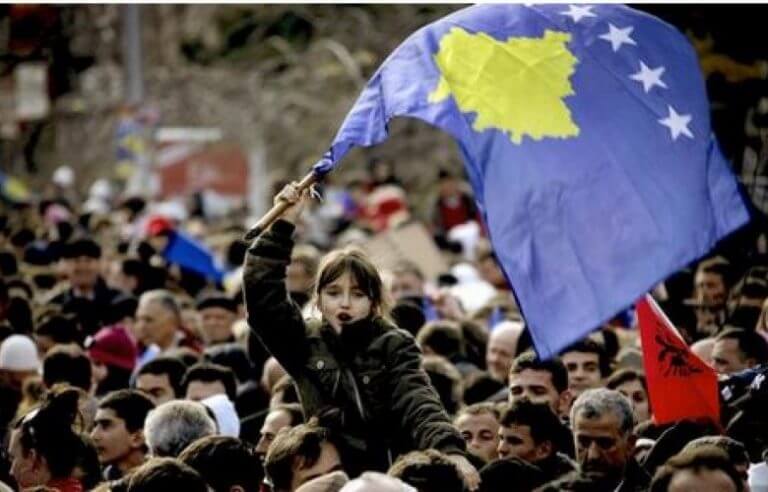
Kosovo celebrates "Liberation Day"
Kosovo celebrates "Liberation Day"
The NATO ground operation, which began on June 12, 1999 and ensured the complete withdrawal of Serbian troops from Kosovo and the deployment of multinational peacekeeping forces in Kosovo, is celebrated in the country with various events as "Liberation Day".
Tony Blair, who was British Prime Minister during the Kosovo war and was among the influential figures in the NATO intervention in the country, addressed MPs at a special session of the General Assembly of the Parliament of Kosovo on the occasion of the "Liberation of the country". Day."
Blair said he had never regretted his help in liberating Kosovo 25 years ago.
Stating that NATO's decision to attack Serbian military installations has broader implications than the liberation of the people of Kosovo, Blair said: "In my opinion, the fight for Kosovo is not only for Kosovo, but for all of us, including my own country. who believe that freedom and justice are worth defending and fighting for, if necessary. said.
Blair stated that Kosovo still faces many challenges and said, "Let's imagine the future for a moment. Imagine that the Balkan country of Kosovo is integrated into the European Union along with other Balkan countries. Imagine domestic peace in the country and international recognition abroad. The talented youth of Kosovo, as part of the European community, helps to develop innovations in technologies that transform the world." he said.
Blair also held separate meetings with the country's leaders as part of his visit to Kosovo.
In addition, Albanian Prime Minister Edi Rama and then Italian Prime Minister Massimo D'Alema also came to Pristina and took part in various events organized for the "Liberation Day".
The "Day of Liberation" of Kosovo.
After the Federal Republic of Yugoslavia, under the leadership of Slobodan Milosevic, did not stop the harassment and massacre against Albanians and other communities in Kosovo, NATO launched a ground operation against Kosovo on June 12, 1999 after a 78-day air operation. The operation represents one of the turning points on the path to the country's independence.
About 50,000 soldiers from different countries served in the operation within the framework of the NATO Peace Forces in Kosovo (KFOR).
The complete withdrawal of Serbian troops from Kosovo was completed on June 20, 1999 and the process of returning Kosovar refugees to their homes began.
KFOR, which began its service in Kosovo in accordance with the decision of the UN Security Council on ensuring security and stability, has more than 4,500 international military personnel from 28 countries, including 23 NATO members and 5 non-NATO partner countries.
The Kosovo war and the independence process
In the Kosovo war of 1998-1999, more than 10,000 Kosovars, mostly Albanians, were killed, and more than 1 million Kosovars of different ethnic groups were forced to leave their homes.
Kosovo declared its unilateral independence from Serbia on February 17, 2008, but Serbia still considers Kosovo "its territory."
Kosovo and Serbia are trying to find a common way to normalize relations and eventually recognize each other through the Belgrade-Pristina dialogue process, which was launched in 2011 with the mediation of the EU. Recent tensions in northern Kosovo have led to the blocking of this process.